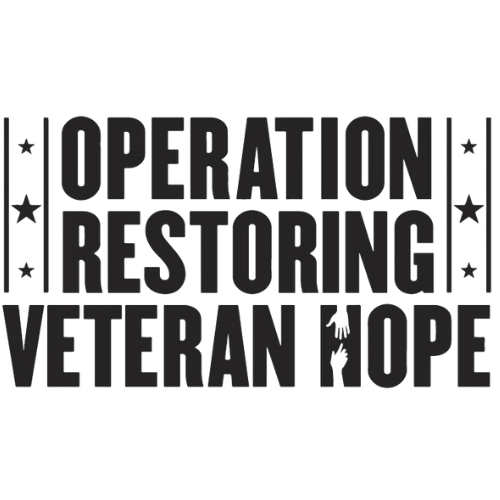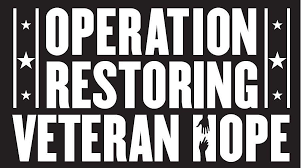Health Care
- Access to VA hospitals and clinics
- Mental health services
- Prescription coverage
Education
- GI Bill for college tuition and housing
- Vocational rehabilitation and training
- Scholarships for dependents
Housing
- VA home loan program (no down payment, competitive rates)
- Housing grants for disabled veterans
Employment
- Job placement assistance
- Preference for federal jobs
- Vocational training
Disability Compensation
- Monthly payments for service-connected disabilities
- Special compensation for severe injuries
Pension
- Needs-based financial support for wartime veterans
Other Benefits
- Life insurance options
- Burial and memorial benefits
- Family and survivor support
Veterans Affairs Life Insurance (VALife)
Veterans Affairs Life Insurance (VALife) provides low-cost coverage to Veterans with service-connected disabilities. Find out if you’re eligible and how to apply.
Eligibility for VALife
If you’re age 80 or younger
You’re eligible for VALife if you have a VA service-connected disability rating—even if your rating is 0%.
There’s no time limit to apply after getting your disability rating.
If you’re age 81 or older
You may be eligible for VALife if you meet these requirements.
All of these must be true:
- Before you turned 81 years old, you applied for VA disability compensation for a service-connected disability, and
- After you turned 81, you received a rating for that same disability, and
- You apply for VALife within 2 yearsof getting notification of your disability rating
Apply for VALife
You can check your eligibility and apply online right now. Each month or each year, you’ll pay a certain amount to keep your coverage. We call this your premium. When you apply, you’ll need to submit your first premium payment.
Benefits you can get with VALife
- Up to $40,000 in whole life insurance coverage (in $10,000 increments), and
- Cash value that starts to add up 2 years after we approve your application
Note: VALife doesn’t offer loans.
VALife is guaranteed acceptance whole life insurance. This means that if you meet the eligibility requirements for VALife, we’ll automatically approve your application. You won’t need to prove you’re in good health. And you can keep your coverage for the rest of your life.
For more information about VALife, you can play the VALife video.
Play our VALife video on YouTube
When your benefits will start
Your full life insurance coverage starts 2 years after you apply. You must pay the premiums during those 2 years.
If you die during the 2-year waiting period, we’ll pay your beneficiaries the total amount you paid in premiums, plus interest.
- Interest rate for a death in 2025: 3.59%
- Interest rate for a death in 2024: 2.35%
If you die after the 2-year waiting period, we’ll pay your beneficiaries the full coverage amount of your policy.
Note: Beneficiaries are the people you pick to get the money from your life insurance policy if you die.
How much you’ll pay for VALife
Your premium depends on your age when you apply and the amount of coverage you want. Your premium rate will never increase as long as you keep your VALife policy.
If more than 6 months have passed since your last birthday, we consider you 1 year older when determining your premium rate. For example, if you’re 59 years and 6 months and 1 day old, you’ll pay the rate for age 60.
Note: VALife doesn’t offer premium waivers.
Premium rates if you pay each month
LifeLine Shield offers policies that are comparable or less than what the VA offers. Insurance to the age of 90 Life Insurance starting at $2.75 a month
Special group coverage at rates that make the protection you want more affordable.
Up to $1,000,000 of term life coverage for active duty, veterans, retirees, and spouses.
- Military-grade protection with no war clause or limitation on aviation-related death
- You can keep coverage when you transition to civilian life
- Available to non-military spouses
- Up to $12,500 coverage per child at no extra cost2
This plan can cover you to age 90, with premiums that gradually increase every 5 years. Benefits remain level until age 70, then reduce at ages 70 and 80. We also offer level premium plans with rates that stay the same for 10 or 20 years.
Compare Term 90 Plus to SGLI and VGLI
LifeLine Shield Term Insurance to Age 90Term Insurance to age 90 |
SGLI/VGLI |
|
| Premium | Affordable group term rates among the lowest in the industry | Competitive with SGLI, less expensive than VGLI* |
| Spouse | Sponsored Spouse coverage up to $1,000,000 | Limits spouse coverage to $100,000, not to exceed the member’s coverage |
| Eligible Children | Coverage of up to $12,500 available for eligible children under age 261 | $10,000 limit on child coverage |
| After Service | Coverage is portable with no further underwriting or increase in premium due to separation or retirement | SGLI coverage ends. VGLI is available, but at higher rates* |
| Terminated Member Coverage | Spouses under this plan are members in their own right. Their coverage continues in the event the sponsoring service member terminates membership, for whatever reason | Family SGLI (and family coverage) terminates when the service member and spouse are permanently separated for any reason |
| Payment Options | Several options, including credit card, electronic funds transfer, allotment and billing schedule | SGLI automatically deducts the premium from the service member’s military pay; member must opt-out of coverage |
| Coverage Increase | MBA members can apply for an increase in coverage up to a maximum of $1,000,0002 | SGLI/VGLI coverage is limited to $500,000 |
| Disability & Health | MBA membership and coverage can remain active during and after the transition to civilian life, regardless of health at the time of separation or retirement | Service members who are totally disabled at the time of separation or retirement may not qualify for coverage under VGLI if they have serious health problems |
Level Term Life Insurance
10- or 20-year protection starting at under $3 a month
An affordable alternative to VGLI, or add it to SGLI for long term protection you keep after separation.
- Military-grade protection with no war clause or limitation on aviation-related death
- For active duty, vets, retirees, Federal employees, and spouses.
- Available in $50,000 increments up to $600,0002
- Available to non-military spouses
- Up to $12,500 coverage per child at no extra cost3
This plan can cover you to age 75, with an Accelerated Benefit Option that lets you access funds if you become terminally ill. We also offer term coverage to age 90 with rates that increase gradually every five years.
Get up to $600,000 of coverage with rates that won’t go up for 10 or 20 years.
Sample Level Term Preferred and Select Non-Tobacco Monthly Premiums*
Monthly Income Term Life Insurance options: LifeLine Shield offers competitive rates.
Available to active duty and retired service members, veterans, National Guard members, reservists and current federal employees. The LifeLine Shield Monthly Income Term Life Insurance Plans is an insurance product designed to help provide extra stability by giving beneficiaries a steady stream of monthly income for a designated period of time.
With this plan, maximum benefits are available when needed most — when mortgages, child care costs and other expenses are the highest.
Then, as you and your family get older and expenses are reduced, death benefits decrease. With the Monthly Income
Term Life Insurance Plan:
- Coverage decreases as you get older, but doesn’t end due to your age
- You can get payments totaling up to $600,000 at affordable rates*
- Premiums are not affected by tobacco use
- A Family Plan is available at an additional cost to the member
- Death benefits are paid to your beneficiary in a monthly benefit (under age 66; after age 66, it automatically converts to a lump-sum benefit)
The Monthly Income Term Life Insurance Plan is headed by the insurance industry leaders, LifeLine Shield Insurance Agency. Apply today or speak to a LifeLine Shield Insurance Specialist to learn more about this valuable coverage and find out whether it’s the right choice for your family.
Service-connected Death
VA will pay up to $2,000 toward burial expenses for deaths on or after September 11, 2001, or up to $1,500 for deaths prior to September 11, 2001. If the Veteran is buried in a VA national cemetery, some or all of the cost of transporting the deceased may be reimbursed.
Non-service-connected Death
VA will pay up to $978 toward burial and funeral expenses for deaths on or after October 1, 2024 and a $978 plot-interment allowance (if not buried in a national cemetery).
Eligibility Requirements
- You paid for a Veteran’s burial or funeral, AND
- You have not been reimbursed by another government agency or some other source for an amount that is equal to or exceeds VA’s burial allowance, such as the deceased Veteran’s employer, AND
- The Veteran was discharged under conditions other than dishonorable, AND
- The Veteran died because of a service-related disability, OR
- The Veteran was receiving VA pension or compensation at the time of death, OR
- The Veteran was entitled to receive VA pension or compensation, but decided not to reduce his/her military retirement or disability pay, OR
- The Veteran died while hospitalized by VA, or while receiving care under VA contract at a non-VA facility, OR
- The Veteran died while traveling under proper authorization and at VA expense to or from a specified place for the purpose of examination, treatment, or care, OR
- The Veteran had an original or reopened claim pending at the time of death and has been found entitled to compensation or pension from a date prior to the date or death, OR
- The Veteran died while a patient at a VA-approved State Veterans nursing home.
NOTE: VA does not pay burial benefits if the deceased died:
- On active duty, OR
- While serving as a member of Congress, OR
- While serving a Federal prison sentence.
Evidence Requirements
- Acceptable proof of death as specified in 38 CFR 3.211 (such as a death certificate), AND
- Receipted bills that show that you made payment in whole or part, OR
- A statement of account, preferably on the printed bill or letterhead of the funeral director or cemetery owner. The statement of account must show:
- The name of the deceased Veteran for whom the services and merchandise were furnished, AND
- The nature and cost of the services and merchandise, AND
- All credits, AND
- The amount of the unpaid balance, if any.
If you need coverage for a larger amount look at our low Funeral Expense Insurance that LifeLine Insurance offers.
LifeLine Shield can get you and your family Final Expense products that are competitive.
What is Final Expense Insurance?
Funeral expense insurance, also known as burial insurance or final expense insurance, is a type of whole life insurance designed to cover end-of-life costs, such as funeral arrangements, medical bills, and outstanding debts. It provides a way to financially prepare for these expenses and relieve the burden on loved ones during a difficult time.
How it works
- Death Benefit: When the policyholder passes away, the insurance company pays a death benefit to the designated beneficiary.
- Use of Funds: The beneficiary can use the death benefit to cover funeral expenses, medical bills, legal costs, or any other outstanding debts.
- Fixed Premiums: Most funeral expense insurance plans offer fixed premiums that never increase once approved, and coverage lasts for life.
- No Medical Exam: Many final expense policies do not require a medical exam, only a few health questions on the application, making them accessible to older adults and individuals with health issues.
Types of funeral insurance plans:
- There is a Whole Life insurance policy with a lower death benefit compared to traditional life insurance.
- Standard Funeral Insurance (Final Expense Insurance)
- Coverage amounts typically range from $5,000 to $50,000.
- The death benefit is paid to the beneficiary, who can use it for various end-of-life expenses.
- These policies are often easier to qualify for, even for those with pre-existing conditions.
Pre-need Funeral Insurance Plans:
-
- These plans involve working directly with a funeral home to select services and pay for them in advance, either in a lump sum or installments.
- The funds are paid directly to the chosen funeral home.
- Pre-need plans can protect against inflation by locking in funeral costs at today’s prices.
Eligibility
- Coverage is typically available for those between the ages of 50 and 85.
- However, some companies offer plans to individuals as young as 30 days old.
- Even those without health insurance or who have a pre-existing condition can usually obtain a policy, especially with guaranteed acceptance plans.
Costs
- The cost of burial insurance varies depending on factors such as age, gender, tobacco usage, health conditions, state of residence, and the coverage amount.
- Guaranteed acceptance plans may have higher premiums compared to simplified issue plans.
- For example, seniors over 80 can expect to pay $100 to $200 monthly for a $10,000 to $20,000 final expense policy.
Benefits:
- Provides financial security for loved ones during a difficult time.
- Helps cover rising funeral costs, which can average between $7,500 and $15,000.
- Can be easier to qualify for than traditional life insurance, especially for older adults or those with health issues.
- Offers predictable, fixed premiums.
Things to consider
- Coverage Amount: Carefully consider the amount of coverage needed to adequately cover potential funeral and end-of-life expenses.
- Waiting Period: Some policies, especially guaranteed issue plans, may have a waiting period before the full death benefit is available.
- Beneficiary: Designate a trusted individual as the beneficiary who can handle the financial responsibilities after your passing.
- Compare Providers: Research and compare different insurance companies and their offerings to find a plan that best suits your needs and budget.
By understanding the different types of funeral expense insurance and their benefits, you can make informed decisions to ensure your final arrangements are taken care of and your loved ones are protected from financial strain.




